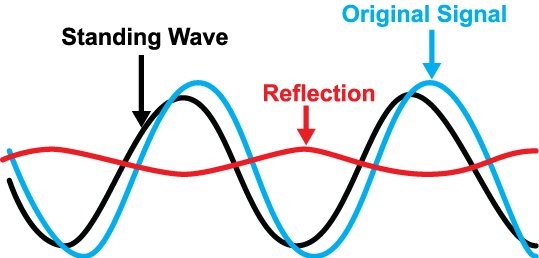VSWR Return Loss Calculator
VSWR is the voltage standing wave ratio it used to measure the all-types waves (example: antenna waves) during transmission. Suppose the wave is not matched with load and signal there is some unwanted signals are interrupted or signal loss is occurred. Return loss is when the transmitted signal is not completely return back to source. The VSWR range is between 1 to ∞. The VSWR meter is a directional coupler. For antennas the VSWR range value is under two. Suppose it exceeds the range of two VSWR will be mismatched.
There should be 4millimeter distance between ground plane and radiation path for reducing of return loss. The engineers used VSWR to see the actual angle between transmitting devices and transmission line.
The mismatch loss and return loss is the two parameters will show much signal has been lost. Technically this power losses are seen in decibels(dB), dB is easy for calculating.
Formula
Voltage standing wave ratio is equals to one plus toue (Γ) is reciprocal of one minus toue (Γ)
Toue (Γ) is equals to Voltage standing wave ratio minus one reciprocal of Voltage standing wave ratio plus one.
Return loss is equals to minus20 logarithmic of 10 toue (Γ)
Matching loss is equals to minus 10 logarithmic of 10 is product of one minus 2toue (Γ)
Where
VSWR = Voltage standing wave ratio
Γ = Reflection coefficient
LR = Return loss in decibels
LM = Matching loss in decibels
Example
Let’s calculate Voltage standing wave ratio, consider reflection coefficient(Γ) = 5.
Lets apply formula
VSWR = (1+3)\(1-3)
VSWR = -1.500
We know VSWR is -1.500 then find out Toue (Γ)
Lets apply formula
Γ = (-1.500-1)/(-1500+1)
Γ = 5
We know lets calculate return loss in decibels
Lets apply formula
LR = -2010g10(5)
LR = -13.98 decibels





